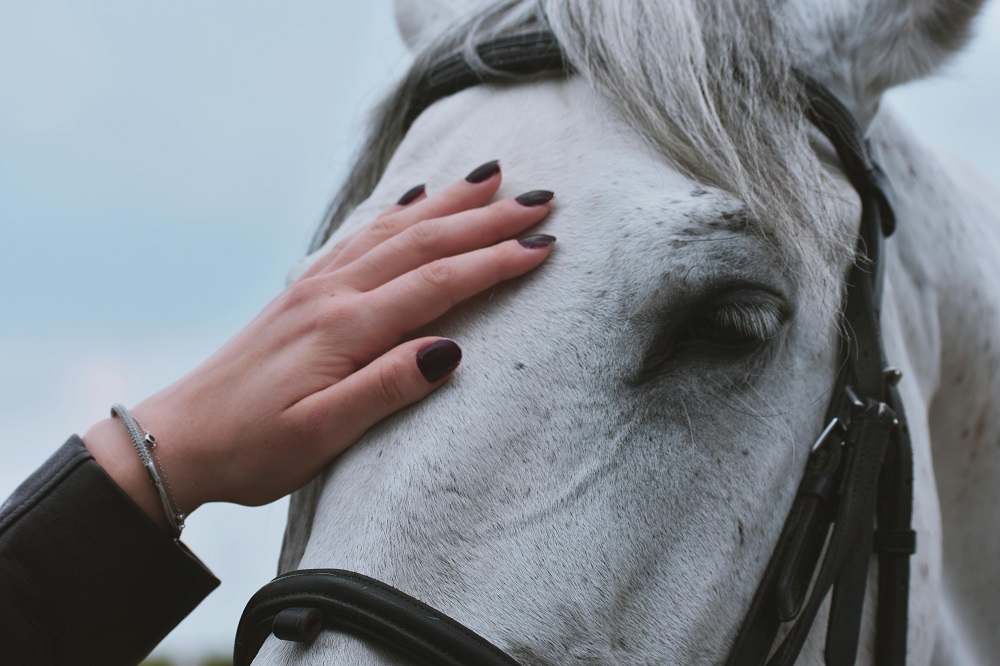
Beyond
Are Horses Good Pets? A Beginner’s Guide
Horses have long held a special place in human culture, admired for their grace, strength, and intelligence. For many, the idea of having a horse as a pet is a dream come true. But are horses good pets for everyone? In this article, we’ll see what it takes to care for a horse, the responsibilities involved, and if this noble animal is a good fit for your lifestyle.
Understanding the Nature of Horses
It is beneficial to understand what horses really are like prior to making a choice to obtain a horse. Horses are herd animals and must be surrounded by other horses in order to feel at ease. They are social creatures and interact in their own manners, being much unlike dogs and cats, which can present problems for a first-time owner.
Horses are smart and sensitive. They get to know people, pay attention to subtleties, and will bond with their owners. But since they’re big and strong, they can hurt a person without intending to do so, if not handled correctly. That’s why training and safety are so important if you have a horse.
Time Commitment and Daily Care
Owning a horse is not a casual endeavor. Horses require daily attention and care, which includes feeding, grooming, exercising, and monitoring their health. On average, you’ll spend at least a couple of hours each day attending to your horse’s needs.
Feeding is an important aspect of taking care. Horses need a proper diet of hay, grains, and water. Due to their delicate digestive system, any abrupt change in diet may cause serious health issues. Routine veterinary checks, vaccinations, and dental checkups are also very important to keep your horse in good health.
Grooming is a daily requirement. Brushing your horse removes dirt and loose hair and helps to prevent skin issues, as well as being a great way to bond with your animal. Foot care is also required, and most horses have their hooves trimmed or shod by a farrier every six or eight weeks.
Horses are large animals that require a lot of space in which to move and exercise. A typical horse requires at least one acre of pasture ground on which to feed and gallop. If you plan to keep a horse at home, you will need a barn or stable, fenced pastures, and clean water sources.
Horse ownership is made challenging by residing in a city or suburb. Several equine owners rely on professional horse maintenance from boarding stables. Boarding might minimize certain of the workday tasks but is not gratis.
Training and Exercise
Horses need exercise and mental stimulation on a daily basis. Riding is one means of giving physical exercise, but turnout time in a pasture is also important. Training is another, especially for new riders. Horses need to be trained to obey directions in an acceptable and safe way, and this can sometimes involve the services of a professional trainer.
Patience and consistency are the key. Horses learn through repetition and reward. Without adequate exercise and training, issues such as bucking, biting, or bolting can develop.
Financial Considerations
Horses are expensive pets. Besides the upfront cost of purchasing a horse—where resources such as HorseClicks can be useful in finding horses—you have to consider ongoing costs such as feed, vet work, farrier services, insurance, equipment, and boarding fees if you don’t have your own land.
You need to be practical about how much you can spend prior to purchasing a horse. A horse is a time- and money-investment.
The Emotional Rewards of Horse Ownership
Many horse owners find the experience to be highly rewarding despite the difficulties. Horses provide happiness, companionship, and a special emotional connection that cannot be easily achieved with any other animal. In addition to giving physical exercise, reducing stress, and instilling a sense of pride, horse riding and horse handling can provide therapeutic benefits.
Respect, patience, and trust are the foundations of your relationship with a horse. Horses won’t act like dogs or cats but, for those who are willing to put in the time and effort required, their loyalty and brainpower make them great companions.
Is a Horse Right for You?
Horses can make wonderful pets for the right person, yet they are not ideal for all. Horses take up loads of space, need to be trained, take a lot of work, and cost a lot of money. Take into account your way of life, your finances, and your commitment to this amazing creature in the long term prior to buying a horse.
It would be best for beginners to begin by volunteering, learning to ride, or going to a nearby stable to receive first-hand experience. This way ensures your satisfaction and the well-being of the horse through your understanding of the responsibilities involved with horse ownership.
Conclusion
Horses are lovely, intelligent, and sensitive animals that possess the ability to strongly bond with human owners. However, they take a lot of time, energy, and money. By observing their needs and being realistic about your capacity to support them, you can determine if a horse is a good pet for you. For those who are ready to take the commitment, the rewards of horse ownership are unparalleled, offering companionship, adventure, and a lifetime of association with one of nature’s finest creations.








Comments